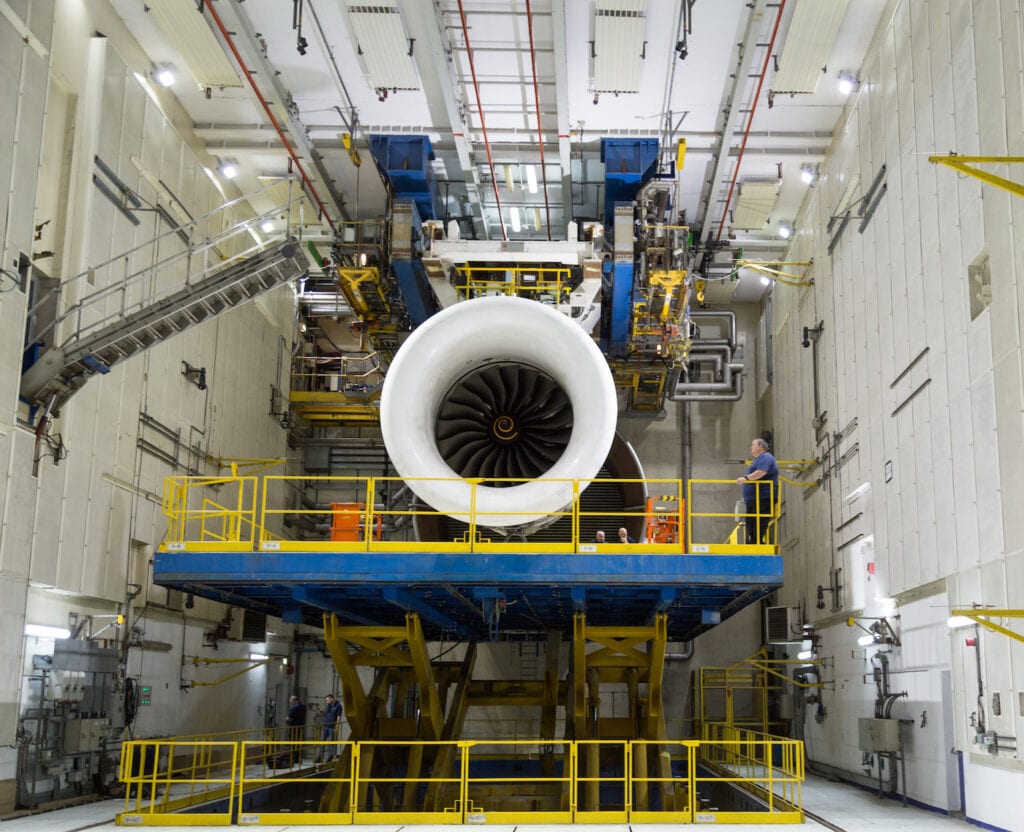
Rolls-Royce Germany will be leveraging artificial intelligence (AI) in a new partnership with Altair for its engineering, testing, and design of aerospace engines. (Rolls Royce)
Rolls-Royce Germany will be leveraging artificial intelligence (AI) in a new partnership with Altair for its engineering, testing, and design of aerospace engines to reduce and accelerate certification and design iterations, reduce extensive physical testing, and improve product quality, Sam Mahalingam, Chief Technical Officer at Altair, told Aviation Today. The memo of understanding between Altair and Rolls-Royce was announced in a Jan. 19 press release.
The German division of Rolls Royce manufacturers jet engines, components, parts and provides services to a range of aviation customers, including Lufthansa, Airbus, Gulfstream and Bombardier. Their Deutschland site for example, is home to a production line for the Trent XWB as well as a number of test facilities for large engines or the Power Gearbox for the new Rolls-Royce UltraFan engine.
“It’s important for aerospace engineers to understand that there is game-changing untapped potential for analytics and AI in their domain,” Mahalingam said. “Aerospace engineers are already very close to data science and thus can do most of it themselves with the right tools after a few weeks or a couple of months.”
Michigan-based Altair provides design and engineering, data analytics and cloud computing services, with existing aviation customers including Airbus Helicopters, Lockheed Martin and Safran Seats.
Engineers at Rolls-Royce use augmented data science with the same tools they currently use for design changes and validation, testing, manufacturing simulation, and validating models using new operational data, Mahalingam said. AI will allow engineers to shrink design validation times by executing more simulations in less time. It will also be able to predict the placement of sensors and require fewer sensors for testing.
The results of these efforts will be reduced certification and design iterations.
“Successful proof of concepts (POCs) have shown that machine learning (ML) can predict where you need to ‘simulate,’ drastically reducing the amount of re-certification (simulations) needed,” Mahalingam said.
AI will also be able to predict where and how testing should be done allowing for more effective testing.
Rolls-Royce will be using Altair’s Knowledge Works data analytics platform which will allow engineers to apply machine learning to their data, according to the press release.
“Today data science is dominated by computer scientists,” Mahalingam said. “Organizations often simply cannot get enough data scientists and if they do, the data scientists often do not have the domain expertise to make use cases successful. This can be a bottleneck and is not scalable. On the other hand, aerospace engineers have the domain knowledge and are very close to data science. What they miss is the computer science and programming part. That’s why a low-/no-code solution is key to empower them to do it themselves after a few weeks / a couple of months. That’s game changing!”
While Rolls-Royce has previously used AI in health monitoring services and manufacturing, this partnership will focus on building engineering judgment and data within processes, Mahalingam said.
“What is completely unique in this partnership is that to make these use cases successful you often need to build engineering judgment and data into the process,” Mahalingam. “What we can say is that Rolls-Royce Germany has highlighted this a key reason for selecting Altair as we have unique domain expertise and best-in-class, low-code data analytics technology.”